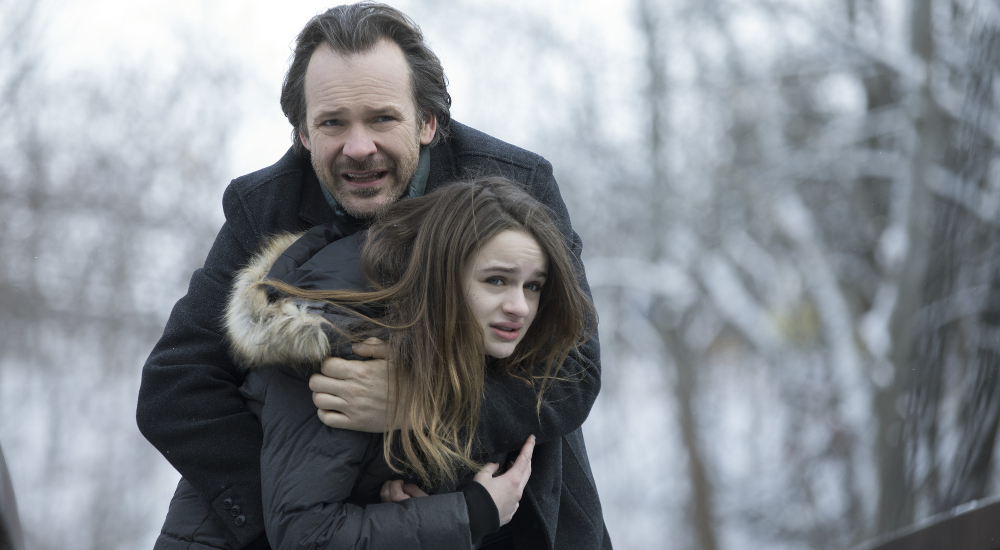"She pushed her."
Though Amazon Studios would have you believe that Veena Sud's The Lie is a recent production, it premiered in 2018 at the Toronto International Film Festival. Its recent acquisition is likely a result of the current global pandemic, which has all streaming studios digging deep for original programming in an effort to keep viewers invested.
Written and directed by Sud, The Lie is a slow-burn thriller that, at times, is so self-involved that it forgets it has a story to tell. Nearly saved by layered performances from stars Mireille Enos and Peter Sarsgaard, the film is unable to generate a sense of urgency amidst its slow and lethargic movements.
One could blame the wintery landscape, a metaphor for the Canadian winter in which the story is set. However, the climate does nothing to slow or speed up the narrative, serving as a blank backdrop that is neither developed nor utilized for the story's sake.
Enos and Sarsgaard give fantastic performances as corporate lawyer Rebecca and professional rock musician Jay, respectively. Beautifully interlaced dialogue reveals that the two split up years ago, seemingly over infidelities, but have remained on seemingly good terms for the sake of their daughter Kayla (Joey King).
Painted as the "cool" parent, Jay is taking their daughter to a weekend dance camp when they see one of Kayla's friends at the bus stop. An innocent invitation for a ride quickly escalates as the two young girls trade bitchy, passive-aggressive exchanges that ultimately lead to a tragic encounter with fatal consequences.
The car banter is both awkward and unnatural. Though the situation sets up the entire premise of the film, it struggles to feel authentic as things escalate at an alarming pace, much at the unknowing hands of Jay. But even when the two girls leave the car, insistent on an emergency bathroom break in the middle of nowhere, you are equally unsure and uninterested in the direction the film is taking.
That is a primary issue that rests at the heart of The Lie. Unable to stir any real emotion, we never fully connect with any of our primary characters and, thus, are never stressed as to their eventual fate.
I'd compare us to Kayla, who seems indifferent to her actions as she returns home to laugh at cartoons on the TV and make breakfast with the unaffected manner of a privileged rich kid. Her parents, along with viewers, can't help but question her mental state as she shows several signs of instability. Is she a raging sociopath? Or has she become a victim of modern culture, numb to the outside world?
This aspect of the film is where Sud succeeds, though the celebration must be compartmentalized.
King is purposefully unlikable, her presence lacking any range, a necessity given her character's age. Teenagers are sporadic during regular times; you'd think there would at least be some sort of life behind her eyes. Instead, we get a muted approach that results in both annoyance and frustration. King is better than her performance here, and the film finds itself continually struggling to overcome her one-dimensional take.
Thankfully we are given two other actors to focus our attention on in Enos and Sarsgaard. The two veteran performers take us with them as their characters attempt to understand the nightmare situation and come to grips with their daughter's potential fate. Serving as estranged parents who must work together is an interesting angle, especially when placed under a proverbial microscope as the detectives begin to circle outside. But the holding pattern can't last forever, and it wears out its welcome early on.
Using a steady attack of close-up shots, Sud relies too heavily on the paranoia of the unknown, often forgetting the big picture optics needed to push the story forward. As a result, we find ourselves continually wondering when not how The Lie will end.
*This film is streaming globally on Amazon Prime.

